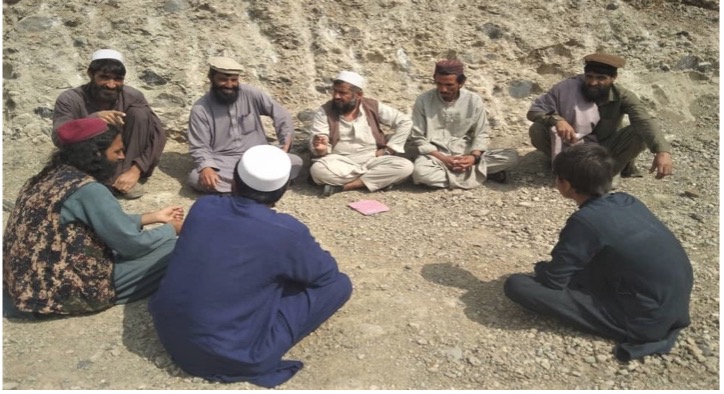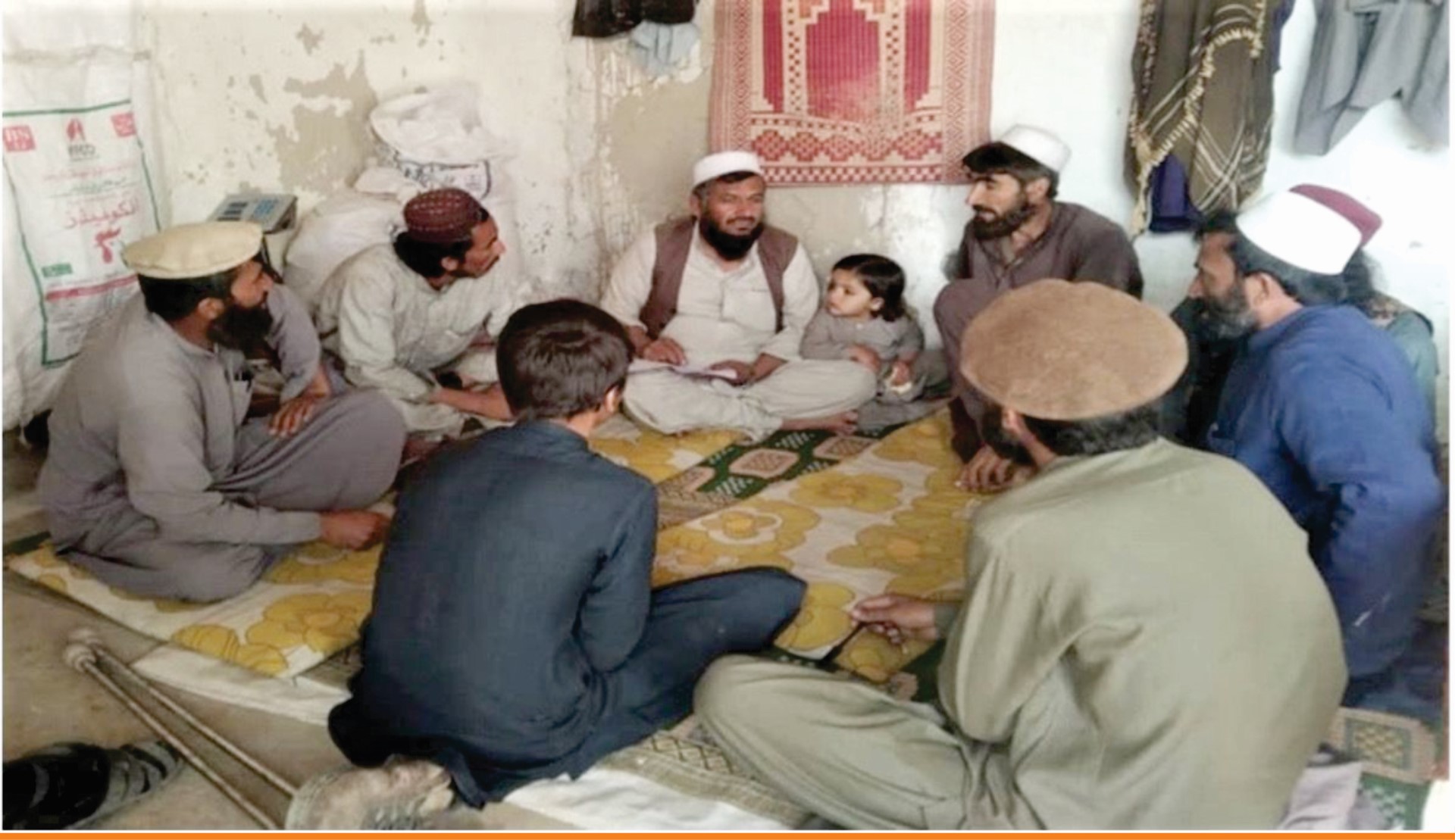50-year-old tribal leader Rustam Khan, a resident of Matun Center, participated in various capacity-building workshops organized by HRWMO. As a result of the workshops, a four-year dispute between two families was resolved through a traditional Jirga.
Rustam Khan recounts the story of Varuuddin and Amiruddin, who were cousins who had exchanged their daughters. After six years, a family dispute arose in Amiruddin home. The Varuuddin family received false information that the Amiruddin family had broken their daughter’s hand as a result of the dispute. Without a thorough investigation, Varuuddin, fueled by anger, also broke Amiruddin’s daughter’s hand, sparking immediate hostility and conflict between the two families.
When Varuudin found out that he was falsely accused of breaking my daughter’s hand, he decided to leave his village and move to the center of Matun. Additionally, the Amiruddin family took back their daughter, who had two children with Varuudin, and sent them to their father’s house.
Five children, three boys, and two girls, were deprived of their mother’s blessings and compassion for four years, and they lived in difficult conditions. Even these five children were malnourished.
Rustam Khan says, “There were many lawsuits and jirgas between these families, and this conflict lasted for almost four years. Utilizing the effective materials from HRWMO workshops, I formed a four-member assembly and had multiple separate discussions with each family. I talked about the rights of women and children from the perspective of Islam and worked to end the harm caused by hostility and conflict.”
We managed to persuade them to reconcile and successfully brought them back together within a week. The women who had been staying at their fathers’ houses for four years were reunited with their husbands and children.
Rustam Khan also mentioned that it was painful for a girl not to recognize her mother when she hugged her.

Mr. Farid, a member of self-help groups, shared a story about a violent incident in the Darga village of Tani district in Khost province. The conflict arose between two families, the Fakirs and the Lundis, over a piece of land. The Fakirs had planted trees on the land, but the Lundis cut them down. In response, the Fakirs claimed that the trees were drying up, and they needed to plant them elsewhere.
This cycle of retaliation escalated until the Fakir family ultimately killed a young man from the Lundi family who had felled a tree. The village elders and tribal leaders attempted to resolve the feud between the two families. In Khost province, it is customary to seek reconciliation by giving girls in marriage, which we refer to as “Bad”. Mr. Farid, along with community activists from Tani district, participated in a Jirga to address the issue. They emphasized that giving a girl to the opposing party for the sake of peace is illegal and goes against Islamic principles.
After the Jirga concluded, its members and leaders agreed to exchange land, money, or property as a way to resolve the conflict. Mr. Farid noted that participating in various management, conflict resolution, and mediation workshops organized by HRWMO helped the youth and community leaders understand the negative outcomes of the Jirga’s decisions. This education enabled them to address and resolve disputes between families and communities effectively. They learned to apply alternative dispute resolution skills and emphasized the importance of human values during the Jirga process.
“For more stories, please click here.”

